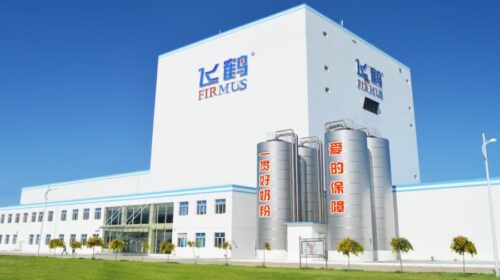Cango’s Car-Trading Platform Racks Up Users, But Investors Want Profits

Company’s newly launched U-Car platform becomes one of the final pieces in its new business model providing a wide range of online car-trading services
Key Takeaways:
- Cango’s revenue fell sharply in the third quarter on a weak macro environment and its own transforming business model, as its loss also narrowed sharply on cost controls
- The company launched its U-Car used car platform during the quarter, and said its business transformation to car-trading services provider is now ‘effectively complete’
By Doug Young
Everyone loves a good turnaround story. But in these economically uncertain times for China, they may love profits even more.
That may explain investor reaction to the latest earnings report from Cango Inc. (CANG.US), which showed steady progress in the company’s transformation to a car-trading platform from its previous life as an auto financier. At the same time, the company reported a sharply lower net loss in its latest report for the third quarter.
But it seems there’s no substitute for the real deal, in this case profits, which Cango has yet to report in its latest form. Perhaps disappointed at that, along with management’s failure to answer a question about when it might break-even on its earnings call, the company’s shares sagged 15% after it released its latest results, closing near an all-time low.
The macro picture for China’s auto industry isn’t pretty either, which probably distracted investors from the generally positive trends in Cango’s report, including some significant gains for its recently launched U-Car platform for used car trading. That platform, combined with Cango’s slightly older Haoche new car trading platform, are the foundation for its emerging business model as a provider of a wide range of car-related services for both buyers and sellers.
We’ll begin with the outlook for China’s broader auto sector, which has weighed heavily on everyone from manufacturers to dealers and other related service providers like Cango. The sector hit a major speed bump in the spring due to widespread lockdowns and other Covid control measures in China, but then suddenly came back to life in June and posted solid gains through October.
But things looked shakier in November, with recent indicators showing growing dealer inventory as monthly sales look set to fall again due to the most recent Covid control measures.
Despite the broader auto sector’s cloudy picture, Cango pointed out it could actually be positioned to benefit due to its position as a provider of more cost-efficient products and services with a special focus on price-sensitive smaller markets.
“The pandemic’s ongoing impact, together with favorable policies released in the last two quarters, is reshaping the landscape of the domestic automotive industry,” Cango CEO Lin Jiayuan said in remarks accompanying the latest results. “In light of evolving market trends and positive regulatory changes, we remained focused on our car trading transactions business and continued to elevate our one-stop platform service capabilities.”
While Cango has now assembled most of the pieces for its new business as a car-trading services provider, it’s only now starting to ramp up the platform as it phases out its older car financing business. As a result of that, plus other macro factors we’ve mentioned, the company’s revenue tumbled 48% during the quarter year-on-year to 416.4 million yuan ($59 million).
While that’s certainly nothing to brag about, we should note the figure beat the company’s previous guidance and marked an improvement over an even larger 69% revenue decline in the second quarter. Cango forecast more weakness in the current fourth quarter, predicting its revenue would drop between 52% and 57% from a year earlier.
Despite the big revenue drop, the company’s bottom line improved significantly as it reined in its overall operating costs and expenses by 27%. Its latest quarterly loss came in at 130.3 million yuan, narrowing by about two-thirds from the year-ago 416.5 million yuan loss.
Accelerating user base
With all those big figures out of the way, we’ll spend the second half of this review looking at Cango’s progress in building up its car services platform, and equally important, in populating that platform with the dealers and other users that will become its future main revenue source.
In that regard, Cango noted in its latest report that 83.4% of its revenue came from car-trading services in the latest quarter, up from 75.6% in the second quarter. Lin said on the call that company’s transformation from financier to car-trading platform is now “effectively complete.”
“The next milestone will be the scale-up of our business model which we will endeavor to complete next year,” he said.
The company is already making steady progress in that direction, with 9,350 dealers in 305 cities on its Haoche platform at the end of September, up 13.5% from the previous quarter. Cango launched Haoche as a mini-app on the popular WeChat instant messaging platform last year. It launched a full app for the platform late in the second quarter, and said the app had attracted over 300,000 page views and 27,000 unique visitors through the end of September.
The second wheel to the company’s platform is U-Car, which followed a similar path with its initial launch as a WeChat mini app in the third quarter. Cango aims to build the service into a used car trading community, hoping to capitalize on recent government policies aimed at creating a national used car market as part of Beijing’s promotion of better recycling.
Following its recent launch, U-Car already had more than 3,000 registered dealers at the end of September, and had accumulated 290,000 page views and 15,000 unique visitors by then. Following the strong reception, the company is planning to develop a web version of the app, with plans to launch within the next year.
Managers noted that Cango is well positioned to leverage its strong industry relationships to obtain high-quality used cars, with an aim of selling many of those directly to buyers at margins that are typically higher than by selling to other dealers.
Last but not least, Cango also added a number of new services to its platform during the quarter, including insurance, deposit guarantee, maintenance and customer lead generation services, among others.
The bottom line is that Cango is still a work in progress, even though its new business model seems to be nearing the finish line. Its stock currently trades at a price-to-sales (P/S) ratio of 0.54, which is low but actually better than domestic rival Uxin (UXIN.US) at 0.37 and U.S. player Carvana (CVNA.US) at just 0.05. But it’s well below turbocharged and profitable domestic rival Autohome’s (ATHM.US; 2518.HK) P/S of 3.84, which just goes to show that there really is no substitute for profits.
The Bamboo Works offers a wide-ranging mix of coverage on U.S.- and Hong Kong-listed Chinese companies, including some sponsored content. For additional queries, including questions on individual articles, please contact us by clicking here.
To subscribe to Bamboo Works free weekly newsletter, click here






